Anti Defection Law, Article, Schedule, Reforms, UPSC, Amendment
Table of Contents
- What is the Anti Defection Law
- Why is an Anti-defection law needed

Anti Defection Law Important Provisions
- Why is the Anti Defection law under criticism
Anti Defection Law Amendments
- How do other countries deal with the question of political defection
- What are some of the judicial observations regarding defection in India
- What are the suggestions to reform the Anti Defection law in India
Prelims: Indian Constitution—Historical Underpinnings, Evolution, Features, Amendments, Significant Provisions and Basic Structure.
Mains: Indian Constitution—Historical Underpinnings, Evolution, Features, Amendments, Significant Provisions and Basic Structure.
What is the Anti Defection Law?
- Defection refers to switching political allegiance, particularly when a member of a political party leaves the party and joins another party or becomes independent.
- Anti-defection Law in India was enacted in 1985 through the 52nd Amendment Act of 1985 as part of the Tenth Schedule of the Constitution of India . Anti-defection laws aim to prevent or discourage defection by imposing penalties on politicians who switch parties or otherwise violate party discipline.
- These laws may be designed to ensure that politicians are held accountable to the voters who elected them and to maintain the stability and cohesion of political parties.
- In some countries , anti-defection laws allow political parties to expel members who defect, while in others, they may disqualify defectors from holding public office or impose other penalties.
Why is an Anti-defection law needed?
An anti-defection law is needed in India to prevent elected representatives from switching political parties or factions frequently, which can lead to instability and a lack of accountability in government.
- Prevention of ‘Aya Ram - Gya Ram’ Politics: The phrase ‘Aaya Ram - Gaya Ram’ implied frequent floor crossing by legislators in the party, which was developed by Haryana MLA Gaya Lal in 1967. He changed his party thrice in a fortnight from Congress to United Front back to Congress and then within nine hours to United Front again.
- Curbing money power: the perceived need to curb the corrupting influence of money and power on politicians and to ensure that politicians were accountable to the voters who elected them.
- Ensuring cohesion: It was also seen as a way to promote stability and cohesion within political parties and to prevent the fragmentation of the party system.
- Political Stability: To strengthen democracy by bringing stability to administration and ensuring legislative programmes of the Government are not jeopardized by a defecting parliamentarian.
- Responsibility and Loyalty: To make members of parliament more responsible and loyal to the political parties with whom they were aligned at the time of their election.
The provisions of the anti-defection law of India, as set out in the Tenth Schedule of the Constitution of India, are as follows:
- if he voluntarily gives up his membership of such a political party; or
- if he votes or abstains from voting in such House contrary to any direction issued by his political party without obtaining prior permission of such party and such act has not been condoned by the party within 15 days.
- Independent Members: An independent member of a House becomes disqualified from remaining a member of the House if he joins any political party after such an election.
- Nominated Members: A nominated member of a House becomes disqualified for being a member of the House if he joins any political party after the expiry of six months from the date he takes his seat in the House.
- Merger: If a member goes out of his party due to a merger of the party with another party. A merger takes place when two-thirds of the members of the party have agreed to such a merger.
- Presiding Officer: If a member, after being elected as the presiding officer of the House, voluntarily gives up the membership of his party or rejoins it after he ceases to hold that office. This exemption has been provided in view of the dignity and impartiality of this office.
- Deciding Authority: The Speaker of the House or the Chairman of the Legislative Council, as the case may be, has the authority to decide on questions relating to defection, and his or her decision is final and cannot be challenged in any court.
- Rule-Making Power: The presiding officer of a House is empowered to make rules to give effect to the provisions of the Tenth Schedule. According to the rules made so, the presiding officer can take up a defection case only when he receives a complaint from a member of the House.
- Role of Whip: The whip is responsible for communicating the party's position to its members and ensuring they vote in line with that position. In the case of a member defying the whip and voting against the party's official position, they may be subject to disciplinary action under the anti-defection law.
Why is the Anti Defection law under criticism?
The anti-defection law in India has been the subject of criticism from various quarters. Some of the main criticisms of the law are as follows:
- Curbing dissent: The law infringes on the freedom of legislators to follow their conscience and stand up for their beliefs or represent the interests of their constituents.
- Lack of Intra-Party Democracy: By punishing defectors, the law gives parties a strong incentive to exert control over their members and to discipline those who step out of line. This may discourage legislators from speaking out against party leaders or raising issues that may be unpopular within the party.
- Fragmentation of Parties: To avoid being disqualified under the law, politicians may form their own parties or join existing small parties, leading to a fragmentation of the party system. This may make it harder for parties to form stable governments and to implement policies effectively.
- Undermining representative democracy: The law has been abused for political gain. Political parties have been known to use the threat of defection to discipline their members or to coerce them into supporting certain policies or candidates. This may undermine the integrity of the political process and lead to the erosion of public trust in the political system.
- Controversial role of the speaker: The law has been criticized for its ambiguity and lack of transparency. The provisions of the law are open to interpretation, and the decision of the Speaker or the Chairman on questions of defection is final and cannot be challenged in court. This lack of transparency and judicial oversight has led to concerns about the fairness and impartiality of the process.

Several amendments to the anti-defection law were made through the 91st constitutional amendment Act 2003 . Some of them are as follows:
- The total number of ministers, including the Prime Minister, in the Central Council of Ministers shall not exceed 15 percent of the total strength of the Lok Sabha.
- A member of either House of Parliament belonging to any political party who is disqualified on the ground of defection shall also be disqualified from being appointed as a minister.
- The total number of ministers, including the Chief Minister, in the Council of Ministers in a state shall not exceed 15 percent of the total strength of the Legislative Assembly of that state. But, the number of ministers, including the Chief Minister, in a state shall not be less than 12.
- A member of either House of a state legislature belonging to any political party who is disqualified on the ground of defection shall also be disqualified to be appointed as a minister.
- A member of either House of Parliament or the House of a State Legislature belonging to any political party who is disqualified on the ground of defection shall also be disqualified from holding any remunerative political post .
- The provision of the Tenth Schedule (anti-defection law) pertaining to exemption from disqualification in case of split by one-third of members of a legislature party has been deleted. It means that the defectors have no more protection on the grounds of splits.
How do other countries deal with the question of political defection?
Some countries have laws similar to the Indian anti-defection law, which penalizes politicians who switch parties or violate party discipline. Other countries have no such laws and allow politicians to switch parties or become independents freely.
Here are some examples of how different countries deal with political defections:
- United Kingdom: In the United Kingdom, there is no law prohibiting politicians from switching parties or becoming independents. However, political parties may expel members who defect, and defectors may face backlash from voters in future elections.
- USA: In the United States, there is no law prohibiting politicians from switching parties or becoming independents. However, politicians who switch parties may face backlash from voters in future elections and challenges from within their parties in primary elections.
- Also, countries like Canada, France, Australia, Germany, and Italy do not have any laws against political defection.
What are some of the judicial observations regarding defection in India?
Some of the important cases related to anti-defection in India include
- Kihoto Hollohan vs. Zachillhu and Others (1992): In this case, the Supreme Court of India upheld the constitutionality of the law and ruled that the provisions were necessary to prevent the destabilization of governments and to ensure the integrity of the electoral process.
- G. Viswanathan vs. Hon'ble Speaker, Tamil Nadu Legislative Assembly (1995): In this case, the Supreme Court ruled that the Speaker of a legislative assembly has the power to decide on cases of defection and that the decision of the Speaker is final and cannot be challenged in a court of law.
- Ravi S. Naik vs. Union of India (1994): In this case, the Speaker or Chairman of the relevant legislative body can disqualify an elected representative for defection.
What are the suggestions to reform the Anti Defection law in India?
There have been various suggestions for reform of the anti-defection law in India. Some of the reforms that have been proposed include:
- 2nd ARC: The issue of disqualification of members on the grounds of defection should be decided by the President/Governor on the advice of the Election Commission.
- Reducing the number of defections: The threshold for disqualification should be raised from one-third to two-thirds or three-fourths. This would reduce the number of defections and make it harder for political parties to split.
- Allowing defections in certain circumstances: Some have suggested that defections should be allowed in certain circumstances, such as when a political party merges with another party or when a member is expelled from their party.
- Removing the role of the Speaker: Some have suggested that the role of the Speaker in deciding on cases of disqualification should be removed and replaced with an independent authority, such as the Election Commission.
- Allowing independents to join parties: Some have suggested that independent members should be allowed to join political parties without being disqualified.
- Providing for a grace period: Some have suggested that a grace period should be provided for members who have defected to allow them to prove their loyalty to their new party.
- Time frame: In one of the judgments, the Supreme Court has held that the Speaker of the Legislative Assembly should decide on a petition seeking disqualification of a member under the Tenth Schedule of the Constitution within a period of three months.
Anti Defection Law UPSC PYQs
Q) The role of individual MPs (Members of Parliament) has diminished over the years and as a result healthy constructive debates on policy issues are not usually witnessed. How far can this be attributed to the anti-defection law, which was legislated but with a different intention? (2013)
Q) Which one of the following Schedules of the Constitution of India contains provisions regarding anti-defection? (2014)
(a) Second Schedule
(b) Fifth Schedule
(c) Eighth Schedule
(d) Tenth Schedule
Anti Defection Law FAQs
Q1. Who is a ‘Whip’?
Ans. A Whip is a member of the political party in the Parliament and State legislatures whose role is to ensure that the party's members attend parliamentary proceedings and vote according to the party's instructions.
Q2. What is horse trading?
Ans. In politics, horse trading refers to the process of negotiating and bargaining in order to gain political advantage or to secure the passage of legislation. It often involves making deals or concessions with other politicians or political parties, such as trading votes or support for a particular bill in exchange for other favors or concessions.
© 2024 Vajiram & Ravi. All rights reserved
- Our Selections
- About NEXT IAS
- Director’s Desk
- Advisory Panel
- Faculty Panel
- General Studies Courses
- Optional Courses
- Current Affairs Program (CA-VA)
- Mentorship Program (AIM)
- Interview Guidance Program
- Postal Courses
- Prelims Test Series
- Mains Test Series (GS & Optional)
- ANUBHAV (All India Open Mock Test)
- Daily Current Affairs
- Current Affairs MCQ
- Monthly Current Affairs Magazine
- Previous Year Papers
- Down to Earth
- Kurukshetra
- Union Budget
- Economic Survey
- Download NCERTs
- NIOS Study Material
- Beyond Classroom
- Toppers’ Copies
- Student Portal
TABLE OF CONTENTS
Anti-defection law (adl).
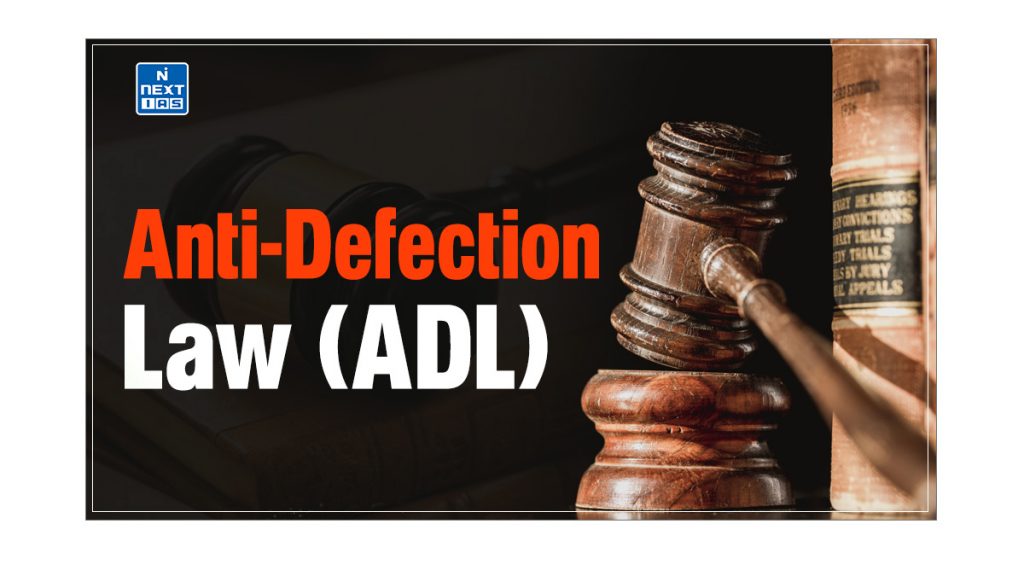
The Anti-Defection Law (ADL) in India plays a vital role in maintaining the stability and integrity of democratic systems. By maintaining party discipline among the Members of Parliament and State Legislatures, it ensures that the mandate given by the electorate is respected. This article of NEXT IAS aims to study in detail the Anti-Defection Law (ADL), its meaning, constitutional provisions, significance, and other related aspects.
What is Defection?
- Defection, in a political context, refers to the act of a member of a legislative body, such as a parliament or state assembly, abandoning their affiliation with one political party, on whose ticket the member was elected, to join another political party.
- This often involves a shift in loyalty for personal gains, such as the promise of a position of power or other benefits.
- Along with breaching the trust of the electorate, defection can undermine the stability of governments and hence the governance processes.
What is Anti-Defection Law (ADL)?
- The Anti-Defection Law (ADL) in India is a legal framework that seeks to curb the practice of political defection by members of the legislature, with the goal of promoting political stability and maintaining party discipline.
- Its primary aim is to deter the Members of Parliament and Members of State Legislatures from switching parties or voting against their party’s directives by imposing the threat of disqualification.
Constitutional Provisions Regarding Anti-Defection Law (ADL)
- It added the Tenth Schedule to the Indian Constitution, which contains the provisions related to the Anti-Defection Law.
- Later, the 91st Amendment Act of 2003 made some changes to certain provisions of the Anti-Defection Law (ADL).
This entire development has been described in the following section.
52nd Amendment Act of 1985
- The 52nd Amendment Act of 1985 provided for the disqualification of the Members of Parliament and the State Legislatures on the grounds of defection from one political party to another.
- Article 101 and Article 190 , which deal with the Vacation of Seats by Members of Parliament and Members of State Legislatures respectively.
- Article 102 and Article 191 , which pertain to Disqualification from Membership of Parliament and State Legislatures respectively.
- Additionally, the Act added a new schedule, the Tenth Schedule, to the Indian Constitution.
- Thus, the 52nd Amendment Act is often referred to as the ‘Anti-Defection Law’.
Tenth Schedule (10th Schedule)
- The Tenth Schedule of the Indian Constitution was added by the 52nd Amendment Act of 1985.
- It contains provisions related to the disqualification of Members of Parliament (MPs) and Members of State Legislatures (MLAs) on the grounds of defection.
- The Tenth Schedule lays down the circumstances under which a legislator can be disqualified from holding office if they violate certain conditions, such as voluntarily giving up their membership of a political party or voting against their party’s official stance on certain matters.
- The provisions of the 10th Schedule, in its present form, have been discussed in detail in the section below.
91st Amendment Act of 2003
The 91st Amendment Act of 2003 has made the following changes in certain provisions of the Indian Constitution:
- The total number of ministers, including the Prime Minister, in the Central Council of Ministers shall not exceed 15 per cent of the total strength of the Lok Sabha.
- A member of either House of Parliament belonging to any political party who is disqualified on the ground of defection shall also be disqualified to be appointed as a minister.
- The total number of ministers, including the Chief Minister, in the Council of Ministers in a State shall not exceed 15 per cent of the total strength of the Legislative Assembly of that State. But, the number of ministers, including the Chief Minister, in a State shall not be less than 12.
- A member of either House of a State Legislature belonging to any political party who is disqualified on the ground of defection shall also be disqualified to be appointed as a minister.
- A member of either the House of Parliament or the House of a State Legislature belonging to any political party who is disqualified on the ground of defection shall also be disqualified from holding any Remunerative Political Post.
- The provision of the Tenth Schedule (Anti Defection Law) pertaining to an exemption from disqualification in case of a split by one-third of members of the legislature party has been deleted. It means that the defectors have no more protection on the grounds of splits.
Provisions of Anti-Defection Law (ADL)
The Tenth Schedule contains the following provisions with respect to the disqualification of Members of Parliament and the Members of the State Legislatures on the grounds of defection:
Disqualification of Members
The provisions related to the disqualification of members of different categories are as follows:
Members of Political Parties
A member of a House belonging to any political party becomes disqualified for being a member of the House if he/she:
- Voluntarily gives up the membership of such political party,
- Votes or abstains from voting in such House contrary to any direction issued by the political party without obtaining prior permission of such party and such act has not been condoned by the party within 15 days.
Hence, it is clear that a member elected on a party ticket should continue in the party and obey the party’s directions.
Independent Members
An independent member of a House, who is elected without being set up as a candidate by any political party, becomes disqualified to remain a member of the House if he/she joins any political party after such election.
Nominated Members
- A nominated member of a House becomes disqualified from being a member of the House if he/she joins any political party after the expiry of six months from the date on which he/she takes his/her seat in the House.
- Thus, he/she may join any political party within six months of taking his/her seat in the House without inviting disqualification.
The above disqualification of members on the grounds of defection does not apply in the following two cases:
- A merger takes place when two-thirds of the members of the party have agreed to such a merger.
- This exemption has been provided to promote the dignity and impartiality of the Speaker’s office.
Deciding Authority
Any question regarding disqualification arising out of defection is to be decided by the Presiding Officer of the House.
In this respect, the following points are to be noted:
- There is no time limit for him/her to decide such a case.
- Originally, the Anti-Defection Act provided that the decision of the Presiding Officer is final and cannot be questioned in any court.
- However, in the Kihoto Hollohan vs. Zachillhu Case (1992), the Supreme Court declared this provision unconstitutional on the grounds that it sought to take away the jurisdiction of the Supreme Court and the High Courts.
- The Supreme Court held that the Presiding Officer while deciding a question under the Tenth Schedule, functions as a tribunal. Hence, his/her decision like that of any other tribunal, is subject to judicial review on the grounds of malafide, perversity, etc.
Rule-Making Power
- All such rules must be placed before the House for 30 days. The House may approve, modify, or disapprove them.
- The Presiding Officer may direct that any willful contravention by any member of such rules may be dealt with in the same manner as a Breach of Privilege of the House.
- The Presiding Officer can take up a defection case only when he/she receives a complaint from a member of the House.
- Before taking the final decision, he/she must give the member (against whom the complaint has been made) a chance to submit his/her explanation.
- He/she may also refer the matter to the Committee of Privileges for inquiry.
Hence, defection has no immediate and automatic effect.
Advantages of Anti-Defection Law (ADL)
The advantages of the Anti-Defection Law in India are as follows:
- It prevents political defections motivated by the lure of some benefits.
- It provides for greater stability in the body politic by checking the propensity of legislators to change parties.
- It facilitates the democratic realignment of parties in the legislature by way of the merger of parties.
- It reduces corruption at the political level as well as non-developmental expenditure incurred on irregular elections.
- It gives a clear-cut constitutional recognition of the existence of political parties.
Criticism of Anti-Defection Law (ADL)
The Anti-Defection Law in India has been criticized on the following grounds:
- Thus, it puts the party bossism on the pedestal and sanctions tyranny of the party in the name of the party discipline.
- It bans individual defection but allows group defection through a merger. This distinction seems irrational.
- It does not provide for the expulsion of a legislator from his/her party for his/her activities outside the legislature.
- Its discrimination between an independent member and a nominated member is illogical. If the former joins a party, he/she is disqualified while the latter is allowed to do the same.
- He/she may not exercise this authority in an impartial and objective manner due to political exigencies.
- He/she might lack the legal knowledge and experience to adjudicate the cases.
The Anti-Defection Law in India is a complex and multifaceted aspect of India’s constitutional framework, with both proponents and critics weighing in on its merits and shortcomings. While the law has been credited with providing greater stability in the body politic and reducing corruption, it has also faced significant criticism for curtailing the legislator’s right to dissent and the potential for bias in the decision-making process. As India’s democracy continues to evolve, the effectiveness and implementation of the Anti-Defection Law remain subjects of ongoing debate and scrutiny, with calls for reforms and improvements to ensure a more robust and representative system of governance.
Latest Article

Nuclear Power Plants in India
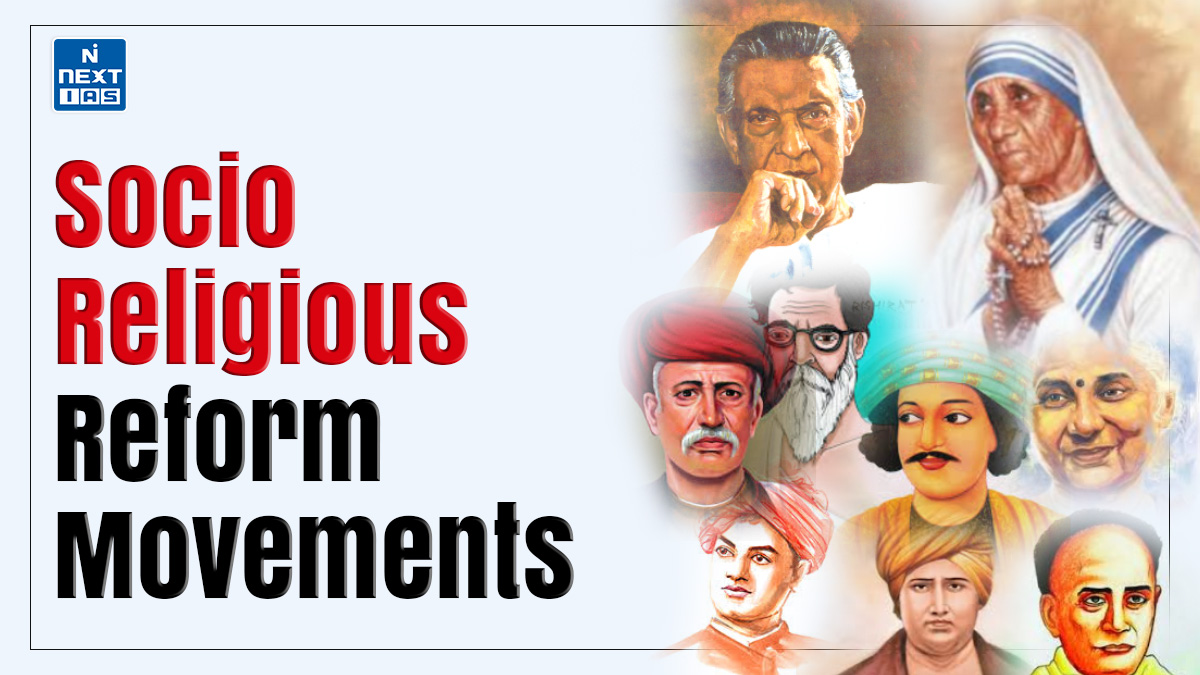
Socio-Religious Reform Movements in India
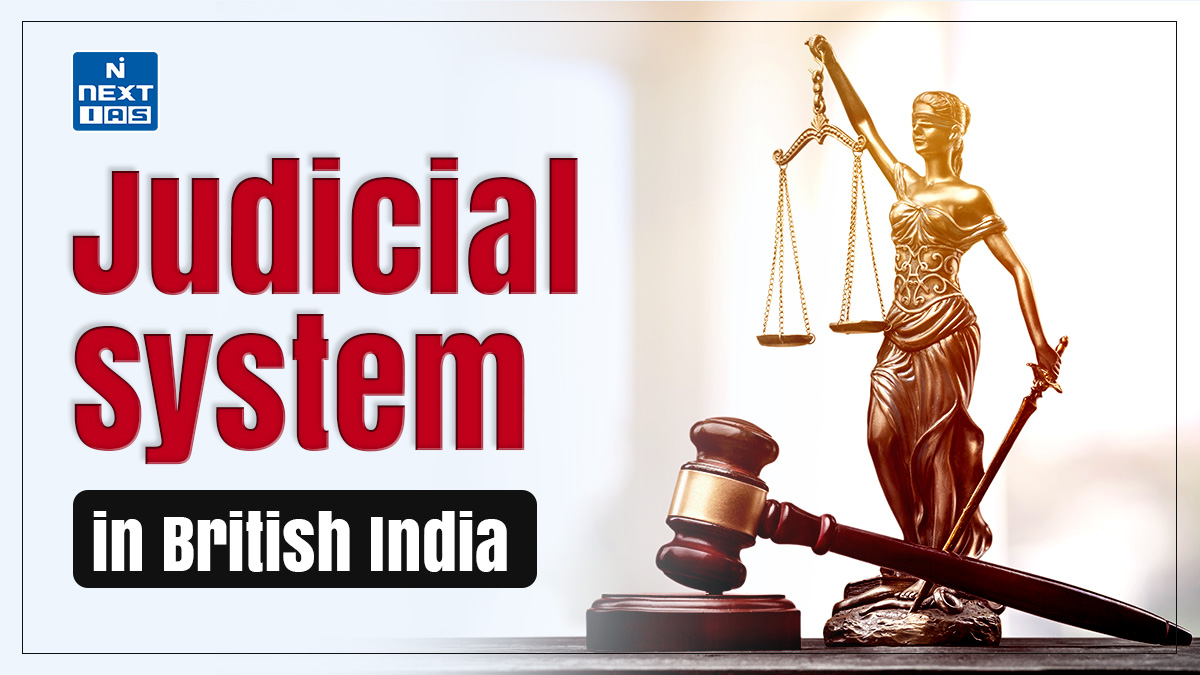
Judicial System in British India

मृदा संरक्षण: अर्थ, तकनीक, अभ्यास और अधिक
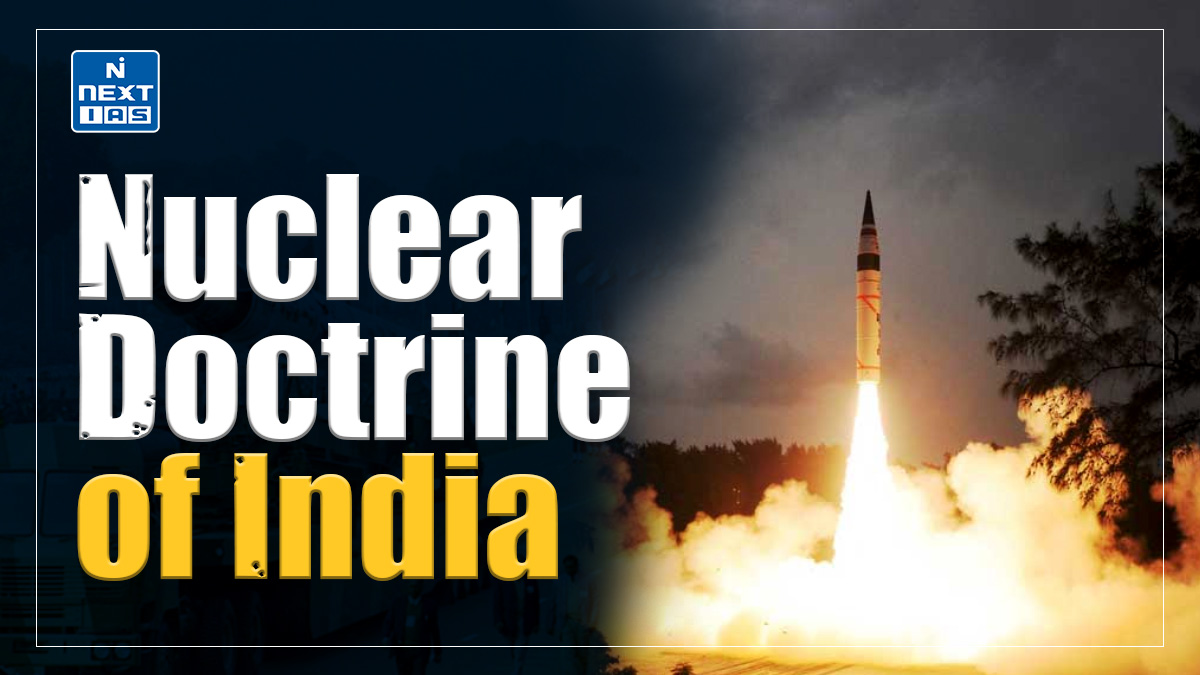
Nuclear Doctrine of India

भारत में वन: समस्याएँ और संरक्षण
Explore Categories
- Art and Culture
- Disaster Management
- Environment and Ecology
- Important Days
- Indian Economy
- Indian Polity
- Indian Society
- Internal Security
- International Relations
- Science and Technology

Subscribe to our Newsletter!
Explore Our Affordable Courses
- UPSC Offline
- UPSC Online
- UPSC (Live From Classroom)
- UPSC Optional
- UPPSC Offline
- BPSC Offline
- UPPCS Online
- BPSC Online
- MPSC Online
- MPPSC Online
- WBPSC Online
- OPSC Online
- BPSC (Live from Classroom)
- UPPSC (Live From Classroom)
- UPSC Test Series
- State PSC Test Series
- Daily Current Affairs
- Subject Wise Current Affairs
- Daily Editorial Analysis
- Daily Prelims(MCQs) Practice
- Daily Mains Answer Writing
- Monthly Current Wallah
- Daily Editorial Summary
- Monthly Editorial Q&A Compilation
- NCERT Wallah
- Prahaar (Mains Wallah) 2024
- Prahaar Summary 2024
- Mains Marks Booster 2024
- Mains Wallah (Q&A)
- Prelims PYQs
- Optionals PYQs
- NCERT Notes
- Udaan Notes
- UPSC Prelims Answer Key
- UPSC Syllabus
- Delhi – Mukherjee Nagar Centre
- Delhi – Old Rajinder Nagar Centre
- UP – Lucknow Centre
- UP – Prayagraj Centre
- Bihar – Patna Centre
- Galgotia University Centre

- Offline Centres
- UDAAN Notes
- UPSC Prelims PYQs
- UPSC Mains PYQs

Shiv Sena MLA Disqualification Case: An Analysis of Anti-Defection Law
This editorial is based on the news “ The Speaker’s court: On the Maharashtra Assembly Speaker’s ruling ” which was published in The hindu. The Maharashtra Assembly Speaker has recently ruled that the faction led by Chief Minister Eknath Shinde was the “real Shiv Sena” when the rival groups emerged on June 21, 2022 .
Maharashtra Speaker’s Ruling: Defiance, and Whip Controversy within Shiv Sena
- Speaker’s Verdict: According to the speaker, the former Chief Minister Uddhav Thackeray had n o authority to remove Eknath Shinde from the party leadership.
- Rejected Petitions : The speaker dismissed petitions filed by the Uddhav Thackeray faction seeking the disqualification of members from the Shinde faction under the anti-defection.
- The speaker also rejected petitions seeking the disqualification of Shinde faction members for defiance of the party whip.
- Speaker also dismissed petitions filed by the Shinde faction and other members seeking the disqualification of members from the Uddhav faction , citing inconsistencies in the response to the service of the whip.
- 10th Schedule and Intra-Party Disputes : The speaker observed that the tenth schedule is not devised for intra-party disputes . It is not a deterrent to stifle the collective dissent of large members.
Timeline of the Issue: Leadership Struggles, Legal Battles, and the Anti-Defection Dilemma in Maharashtra
- MVA is an alliance between the Shiv Sena, the Nationalist Congress Party, and the Indian National Congress.

Shiv Sena Split: The Rebellion, Legal Maneuvers, and Political Turmoil in June 2022
- Mr. Eknath Shinde, the leader of the Shiv Sena in the Legislative Assembly, along with several other Shiv Sena MLAs rebelled against the Shiv Sena.
- Mr. Shinde moved the Supreme Court of India to dispute the disqualification proceedings.
- The normal time to respond to the notice of disqualification is 7 days.
- The Shinde group approached Former Governor of Maharashtra Bhagat Singh Koshyari to express their withdrawal of support for the MVA alliance . The Governor directed that a floor test be conducted to see if the Uddhav Thackeray government still commanded the support of the Maharashtra Legislature.
- The Thackeray faction challenged the floor test before the SC, but the Court refused to stay the floor test. CM Thackeray resigned soon after the SC’s Order without facing the floor test.
- August 2022 : A 3-judge Bench referred the case to a 5-judge Constitution Bench.
- February 2023 : The Electoral Commission of India (ECI) allotted the name Shiv Sena and the party symbol of bow and arrow to Shinde’s faction.
- July 2023: Thackeray’s Shiv Sena approached the Supreme Court seeking direction from the Maharashtra Assembly Speaker to decide the pending disqualification petitions in a time-bound manner.
- December 2023 : The Supreme Court granted the Maharashtra Assembly Speaker an extension of 10 days in deciding the disqualification petitions.
- While adjudicating the petitions, the speaker had to rely on three parameters: the Shiv Sena Constitution, its leadership structure, and the legislative majority.
This case raises legal questions about the effectiveness of the anti-defection law and the significance of speaker’s neutrality.
Legal Framework and Evolution of India’s Anti-Defection Law
- Defection : Under the 10th Schedule of the Constitution , it refers to the act of a legislator changing his/her political party after winning an election.
- Punishment for Defection : Legislators who have defected from their party are disqualified from their seats under the 10th Schedule.
- In 1967, a Haryana-based MLA changed his party 3 times a day, giving birth to the popular phrase ‘Aaya Ram, Gaya Ram ’.
- The anti-defection law was added to the Constitution in 1985 to prevent defections and eliminate potential political corruption .
Disqualification on Ground of Defection: Power, and Judicial Scrutiny under India’s 10th Schedule
- If the member voluntarily gives up their membership of a political party.
- If a member abstains from voting or votes against their party’s directions without the party’s consent.
- Power to Disqualify: The question of disqualification under the 10th Schedule is decided by the Chairman in the case of the legislative council and the Speaker, in the case of legislative assembly (and not by the governor) .
- Disqualification under Judicial Review : In 1992, the Supreme Court in Kihoto Hollohan vs Zachillhu and Others ruled that the decision of the Chairman/Speaker in this regard is subject to judicial review.
Evaluating Impartiality, Judicial Roles, and Loopholes in India’s Anti-Defection Legislation
- The Maharashtra Assembly Speaker ’s ruling on the disqualification petitions filed by rival factions of the Shiv Sena demonstrates that the adjudicatory function under the anti-defection law should not be in the hands of Presiding Officers in the legislature.
- For example, the Court does not intervene in ongoing proceedings of the House and waits for the Speaker’s decision, which it may later review.
Loopholes in the Law: The Anti-Defection Law has certain loopholes that can be exploited.
- For instance, in March 2020, due to the resignation of more than 20 sitting MLAs of the Indian National Congress party from the state’s Legislative Assembly led to the fall of the government. The MLAs later joined the BJP government after winning by-elections . Resignation is how to circumvent the Anti-defection law and attract prescribed punishments.
- Lengthy Process: Disqualification proceedings can be lengthy, and during this period, the legislator in question may continue to participate in the proceedings and vote, potentially influencing decisions.
Way Forward: Proposals for Reforming India’s Anti-Defection Framework
- Dinesh Goswami Committee (1990) suggested that the power of deciding the legal issue of disqualification should not be left to the Speaker or Chairman of the House but to the President or the Governor shall act on the advice of the Election Commission can impartially decide cases of alleged defection.
- Further, an advocate, Arvind P Datar, suggested that the Speaker of the Legislative Assembly should not decide the disqualification proceedings for anti-defection. Instead, the matter should be decided by the dedicated judge/bench in the respective High Court assigned to hear election petitions.
- For instance , Dinesh Goswami Committee (1990) recommended limiting disqualification provisions to cases of voluntarily giving up membership of the political party, voting or abstention from voting by a member contrary to the party direction or whip only in respect of a motion of vote of confidence or a motion amounting to no-confidence or Money Bill or motion of vote of thanks to the President’s address.
- Further, barring defectors from holding public office and invalidating their votes in toppling governments, as r ecommended by the Constitution Review Commission (2002), may help reinforce these public ethics.
- Time-bound Proceedings : Introduce mechanisms to ensure timely resolution of disqualification proceedings. Set specific timelines for the Speaker to decide, and if not adhered to, allow for expedited judicial review to prevent undue delays.
Shiv Sena MLA Disqualification Case highlights challenges in the anti-defection law, emphasizing the need for impartiality, streamlined processes, and judicial reforms. Moving forward, implementing transparent Speaker selection, involving external bodies in disqualification decisions, and revisiting legislation can fortify democratic values and legislative integrity in India’s political landscape.
To get PDF version, Please click on "Print PDF" button.

- Recent Post
- Related Post
- Most Viewed Post
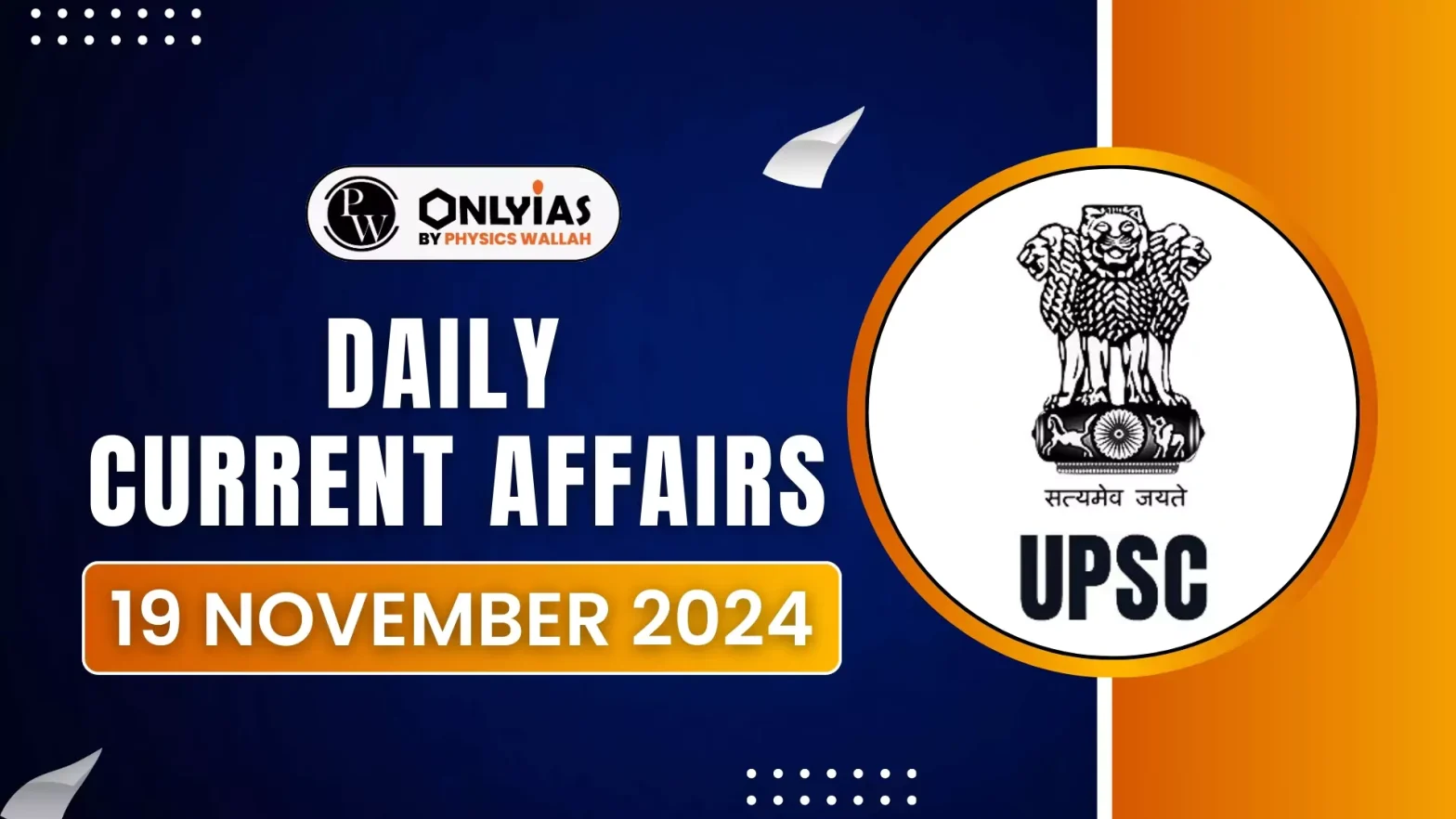
Public Distribution System Must Be Reformed To Fix Leakage
Chennai-Vladivostok Maritime Corridor
Avian Botulism
Global Energy Efficiency Alliance
New Infectious Diseases Among Bees Threaten World’s Ec...
Comptroller and Auditor General of India (CAG)

Social Stock Exchange
Arsenic and fluoride in groundwater, who launches icd 11 – a traditional medicine module 2:..., prime- minister’s egypt state visit, drug controller general of india, latest comments, recent editorial.
On India, Africa and the Global South
Manipur as a case for imposing Article 356
Understanding Starlink: Impact and Implications
Why were the Kerala IAS officers suspended?
An Uphill Struggle to Grow the Forest Rights Act
Growing Epidemic: On Diabetes and India
Popular current affairs
Public Distribution System Must Be Reformed To Fix...
New Infectious Diseases Among Bees Threaten World&...
Our Courses

Need help preparing for UPSC or State PSCs?
Connect with our experts to get free counselling & start preparing
THE MOST LEARNING PLATFORM
Learn From India's Best Faculty

Our Initiatives
Beginner’s roadmap, quick links.

PW-Only IAS came together specifically to carry their individual visions in a mission mode. Infusing affordability with quality and building a team where maximum members represent their experiences of Mains and Interview Stage and hence, their reliability to better understand and solve student issues.
Subscribe our Newsletter
Sign up now for our exclusive newsletter and be the first to know about our latest Initiatives, Quality Content, and much more.
Contact Details
G-Floor,4-B Pusa Road, New Delhi, 110060
- +91 9920613613
- [email protected]
Download Our App
Biginner's roadmap, suscribe now form, fill the required details to get early access of quality content..
Join Us Now
(Promise! We Will Not Spam You.)
CURRENT AF.
<div class="new-fform">
Select centre Online Mode Hybrid Mode PWonlyIAS Delhi (ORN) PWonlyIAS Delhi (MN) PWonlyIAS Lucknow PWonlyIAS Patna Other
Select course UPSC Online PSC ONline UPSC + PSC ONLINE UPSC Offline PSC Offline UPSC+PSC Offline UPSC Hybrid PSC Hybrid UPSC+PSC Hybrid Other
</div>

Shopping Cart
No products in the cart.
The Anti-Defection Law / Tenth Schedule of Constitution – Explained
From Current Affairs Notes for UPSC » Editorials & In-depths » This topic
Recent desertions and defections in the Puducherry assembly have yet again highlighted the absurdity of the anti-defection law. Many MLAs from the treasury benches resigned, decreasing the numbers needed for a no-confidence motion to succeed in the Puducherry Assembly. This practice has also been seen recently in other states like Madhya Pradesh and Karnataka. Thus an MP (or MLA) has absolutely zero freedom to vote their judgement on any issue. They have to blindly follow what the party directs them to do so. This provision goes against the concept of representative democracy.
Therefore, the crucial step would be to review the Anti-Defection Law that made the institution less effective by affecting the independence of MPs/MLAs and removing any incentive for them to research and understand policies that have the bearing on the nation-building and development process.
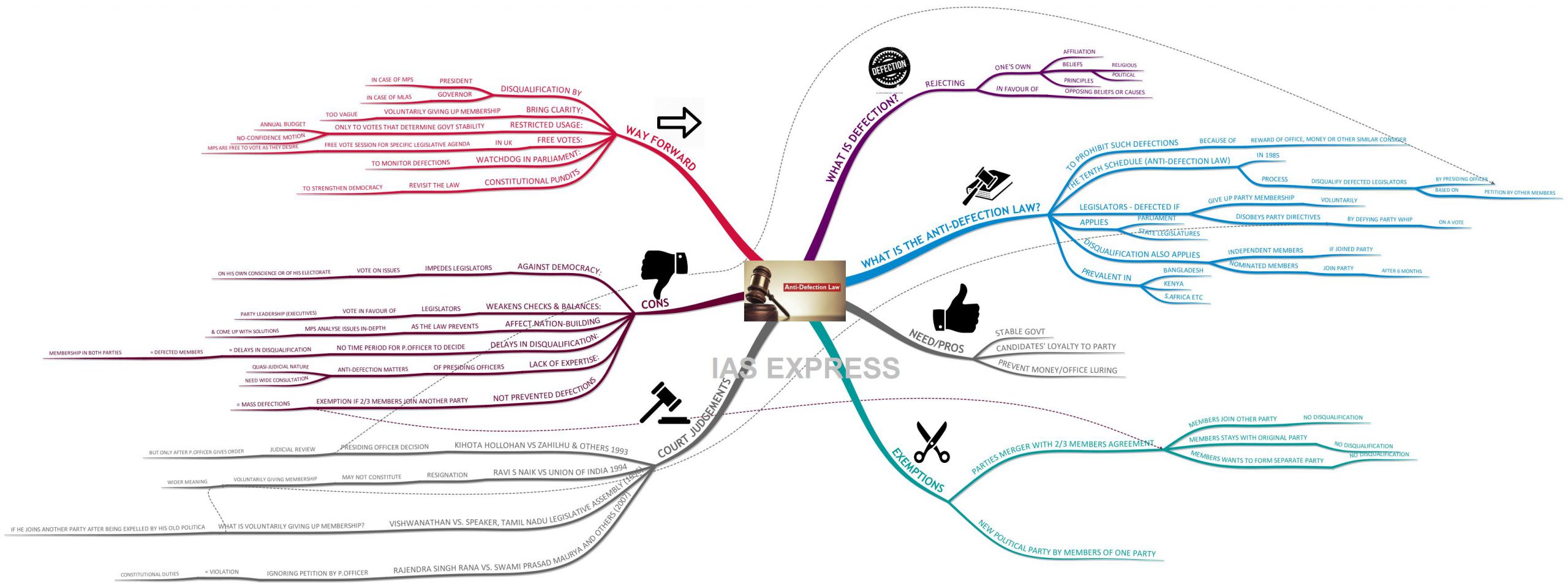
What is defection?
Defection is the state of having rejected one’s own affiliation, religious or political beliefs, or principles often in favour of opposing beliefs or causes.
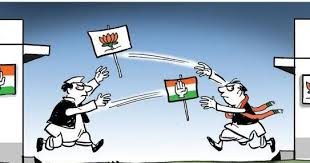
Express Learning Programme (ELP)
- Optional Notes
- Study Hacks
- Prelims Sureshots (Repeated Topic Compilations)
- Current Affairs (Newsbits, Editorials & In-depths)
- Ancient Indian History
- Medieval Indian History
- Modern Indian History
- Post-Independence Indian History
- World History
- Art & Culture
- Geography (World & Indian)
- Indian Society & Social Justice
- Indian Polity
- International Relations
- Indian Economy
- Environment
- Agriculture
- Internal Security
- Disasters & its Management
- General Science – Biology
- General Studies (GS) 4 – Ethics
- Syllabus-wise learning
- Political Science
- Anthropology
- Public Administration
SIGN UP NOW
What is the Anti-Defection Law?
- Aaya Ram Gaya Ram (frequent floor-crossing by legislators) was a phrase that became popular in Indian politics after a Haryana MLA Gaya Lal changed his party thrice within the same day in 1967.
- The anti-defection law sought to prohibit such defections which may happen because of the reward of office, money or other similar considerations.
- The Tenth Schedule (Anti-defection law) was added in the constitution in 1985 which lays down the process by which legislators may be disqualified due to defection by the Presiding Officer of a legislature based on a petition filed by any other member of the House.
- either give up the membership of his party voluntarily or
- It means that a legislator defying (refrain from voting or voting against) the party whip on any issue can lose his membership of the House. Note: A whip of the legislature ensures that members of the party attend and vote as the party leadership desires.
- Anti-defection law applies to both the Parliament and State Legislatures .
- Disqualification under anti-defection law also applies to independent and nominated members of the legislature.
- Independent members would be disqualified if they join a political party.
- Nominated members who are not members of a party; join a party after 6 months from the date of nomination, would be disqualified. In other words, they won’t get disqualified if they join a party within 6 months of nomination.
- Anti-defection law is not only prevalent in India but also in several other countries such as Bangladesh, Kenya, South Africa, etc.
Prelims Sureshots – Most Probable Topics for UPSC Prelims
A Compilation of the Most Probable Topics for UPSC Prelims, including Schemes, Freedom Fighters, Judgments, Acts, National Parks, Government Agencies, Space Missions, and more. Get a guaranteed 120+ marks!
What is the Need for the anti-defection law? / Merits
- Provides a stable government by making sure that legislators do not change sides.
- It ensures that candidates elected with party symbols and on the basis of party manifestos stay loyal to policies of the party.
- It enables political parties to prevent its members from voting for the lure of office or money by opposition parties.
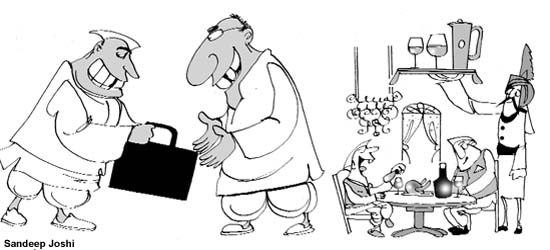
What are the exemptions under the law?
Legislators may change their party without the risk of disqualification in certain circumstances.
- In such a scenario, neither the members who agreed to merge nor the ones who stay with the original party will get disqualified.
- Members who chose neither options and wants to form a separate party from the time of such a merger are also exempted from disqualification.
- If a new political party created by the elected members of one party.
What are the important court judgements regarding anti-defection law?
Kihota hollohon vs. zachilhu and others, 1993.
- Issue: Whether presiding officer’s decision subject to judicial review ?
- The law earlier mentioned that the decision of the Presiding officer is not subject to judicial review.
- This condition was removed by the Supreme Court in 1993 (Kihoto Hollohan Case) thus permitting appeals against the Presiding Officer’s decision in the High Court or the Supreme Court.
- But the Supreme Court maintained that there may not be any judicial intervention until the Presiding Officer gives his order.
Ravi S Naik vs. Union of India, 1994
- Issue: Whether resignation constitutes “voluntarily giving up membership” of a party?
- The SC interpreted the phrase ‘voluntarily gives up his membership’ and said that the phrase is not synonymous with ‘resignation’ and have a wider meaning.
- A person may voluntarily give up his membership of a political party even though he has not submitted his resignation from the membership of that party.
Vishwanathan vs. Speaker, Tamil Nadu Legislative Assembly (1996)
- Issue: What does it mean to be voluntarily giving up a membership?
- The Court stated that a member can be said to voluntarily give up his membership of a party if he joins another party after being expelled by his old political party .
Rajendra Singh Rana vs. Swami Prasad Maurya and Others (2007)
- Issue: Presiding officer failing to act on the petition.
- The SC stated that if the Speaker fails to act on a complaint, or accepts claims of splits or mergers without making a finding, he fails to act as per the Tenth Schedule.
- The Court said that ignoring a petition for disqualification is not merely an irregularity but a violation of constitutional duties.
What are the demerits of anti-defection law?
- Against democracy: It restricts a legislator from voting based on his conscience, judgement, and interests of his electorate on issues of national importance = against the democratic principle of the country.
- Weakens the system of checks & balances: It affects the oversight function of the legislature over the executive by making the members vote with respect to the decisions taken by the party leadership (Ministers) instead of his own conscience.
- Affect nation-building: The law does not provide an incentive for an MP or MLA to examine an issue in-depth before participating in the debate (as his view would lead to his disqualification if it opposes the party’s view) = affect nation-building or developmental process.
- Since courts cannot intervene until the presiding officer gives order = courts cannot question the delay by presiding officer.
- In certain cases, this delay in decision making has led to members, who have defected from their parties, continuing to be members of the House.
- There have also been instances where opposition members have been appointed ministers in the government while still holding the membership of their original parties in the legislature.
- Lack of Expertise: Presiding officers lacks expertise in deciding anti-defection cases which are quasi-judicial in nature and require wide consultations along with the opinion of experts.
- The 10 th schedule provides an exemption for disqualification if 2/3 rd members agree to join another party = mass defection happens across the country.
- In 2016, the Arunachal Pradesh chief minister PemaKhandu, along with 43 MLAs defected from the Congress Party to join People’s Party of Arunachal.
- In recent years, opposition MLAs in some states like Andhra Pradesh and Telangana, have broken away in small groups gradually to join the ruling party. In some of these cases, more than 2/3 rd of the opposition has defected to the ruling party.
What is the way forward?
- Disqualification by President/Governor: Instead of Presiding Officer, the decision to disqualify a member should be taken by the President (in case of MPs) or the Governor (in case of MLAs) on Election Commission’s advice. This would be similar to the disqualification of persons holding Office of Profit . It is because unlike British Parliament, where a Presiding officer is a non-party person, in India, Presiding Officer in the lower house (Speaker) must be the member of Ruling Party = there would be a conflict of interest in taking decisions disqualifying a person for defection.
- Bring clarity: The phrase “voluntarily giving up membership” is too vague and requires comprehensive revision.
- Restricted application: As suggested by Dinesh Goswami Committee and Law Commission, the law should apply only to votes that determine the stability of the government like the passage of the annual budget or no-confidence motion.
- Free votes: In the UK, parties sometimes announces a ” free vote” which means that for a specific legislative agenda, MPs are free to vote as they desire and are not controlled by whips issued by parties.
Politicians found loopholes in this law and have been utilising it for their own benefit. It is high time that a watchdog should be created in our Parliament and our constitutional pundits need to revisit this issue in order to counter the menace of corruption and defection which has worn away the values of democracy.
If you like this post, please share your feedback in the comments section below so that we will upload more posts like this.
GET MONTHLY COMPILATIONS
Related Posts

Member of Parliament Local Area Development scheme (MPLADS) – Issues, ...

[Updated] BIMSTEC vs. SAARC – A Relook During Pandemic
There was a problem reporting this post.
Block Member?
Please confirm you want to block this member.
You will no longer be able to:
- See blocked member's posts
- Mention this member in posts
Please allow a few minutes for this process to complete.


COMMENTS
Defection refers to switching political allegiance, particularly when a member of a political party leaves the party and joins another party or becomes independent. Anti-defection Law in India was enacted in 1985 through the 52nd Amendment Act of 1985 as part of the Tenth Schedule of the Constitution of India. Anti-defection laws aim to prevent ...
The anti-defection law is crucial for maintaining electoral integrity and preventing instability, but its implementation has revealed significant gaps. Amendments to the Tenth Schedule of the Indian Constitution should be prioritised to enhance the law's effectiveness, especially in light of the "One Nation, One Election" initiative. Q.
Enacted in 1985 by the 52nd Amendment, the Anti-Defection Law in India was created to prevent political defections and encourage party discipline, both of which will help in your UPSC exam preparation.
The Anti-Defection Law (ADL) in India is a legal framework that seeks to curb the practice of political defection by members of the legislature, with the goal of promoting political stability and maintaining party discipline. Its primary aim is to deter the Members of Parliament and Members of State Legislatures from switching parties or voting ...
The Tenth Schedule - popularly known as the Anti-Defection Act - was included in the Constitution via the 52nd Amendment Act, 1985. It sets the provisions for disqualification of elected members on the grounds of defection to another political party. It was a response to the toppling of multiple state governments by party-hopping MLAs after the ...
Conclusion. Shiv Sena MLA Disqualification Case highlights challenges in the anti-defection law, emphasizing the need for impartiality, streamlined processes, and judicial reforms. Moving forward, implementing transparent Speaker selection, involving external bodies in disqualification decisions, and revisiting legislation can fortify ...
The anti-defection law was introduced in 1985, through the 52nd Amendment Act of 1985. It was inserted in the Tenth Schedule of the Indian Constitution and is popularly known as Anti Defection Act. Defection has been defined as a "conscious abandonment of allegiance or duty". It lays down the process of disqualification on grounds of defection.
The Tenth Schedule, widely known as the Anti defection Act, was added to the constitution through the 52nd Amendment Act, 1985, and lays down the regulations for disqualification of elected personnel on the grounds of defection to another political party. The Anti defection law penalizes individual Members of Parliament (MPs)/MLAs for moving ...
Essay on Anti-defection law (tenth schedule) UPSC - The anti-defection law is the law that seeks to prohibit defections which may happen because of the reward of office, money or other similar considerations. ... A Compilation of the Most Probable Topics for UPSC Prelims, including Schemes, Freedom Fighters, Judgments, Acts, National Parks ...
About Anti-defection law : It was introduced in India in 1985 through the 52nd amendment to the Constitution of India.; This amendment added the Tenth Schedule to the Constitution, which lists out the provisions related to defection.; I t lays down the process by which legislators may be disqualified on grounds of defection by the Presiding Officer of a legislature based on a petition by any ...